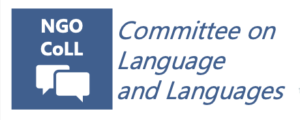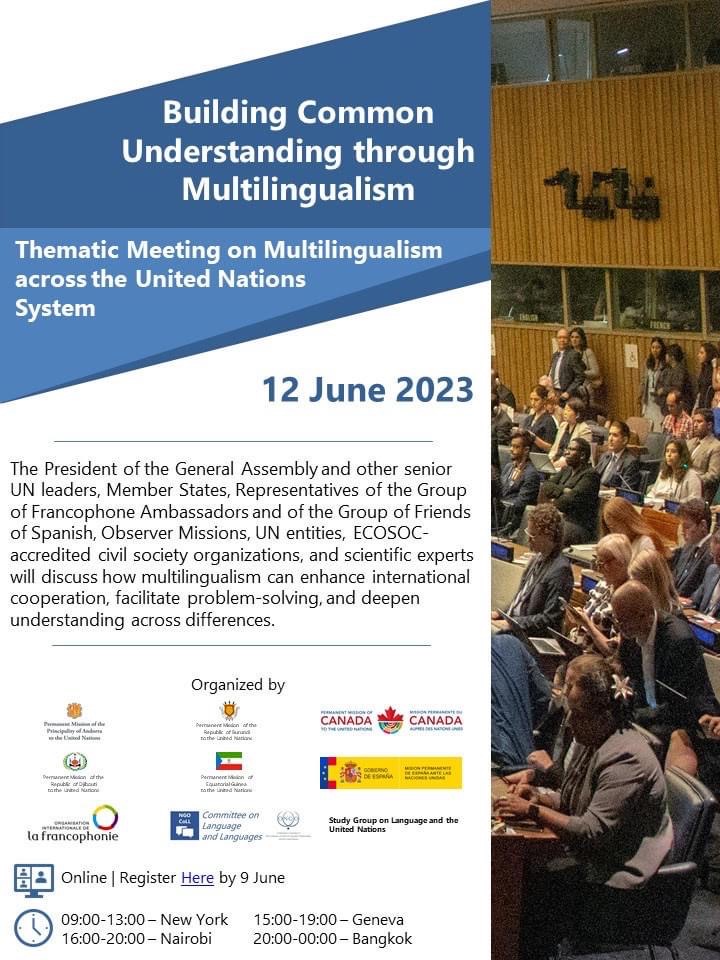When: June 12, 2023
Where: Zoom meeting
Topic: Building Common Understanding through Multilingualism
When: June 12, 2023
Where: Zoom meeting
Topic: Building Common Understanding through Multilingualism

The NGO Committee on Language and Languages (CoLL); the Study Group on Language and the United Nations; the Permanent Missions of Andorra, Burundi, Canada, Djibouti, Equatorial Guinea and Spain; and the Permanent Observer Mission for the International Organization of la Francophonie held a thematic meeting on Multilingualism across the United Nations System.
Member States, Observer Missions, UN entities, civil society organizations and scientific experts presented their perspectives on multilingualism and its alignment with the goals of the United Nations, among them the 17 Sustainable Development Goals.
As stated by the meeting organizers, “Multilingualism, as an enabler of multilateral diplomacy, is central to the work of the United Nations. Because it is a prerequisite to meaningful dialogue, multilingualism is critical to building understanding and solidarity among people and nations, and to sharing knowledge and identifying common solutions to the challenges the world is facing.” They felt strongly that language diversity must be addressed and is crucial “for leaving no one behind and achieving equal treatment of all.”
Red T’s Maya Hess, speaking on behalf of the world language community, focused on the dire need to protect civilian translators and interpreters in conflict situations and asked, “How can we speak of furthering multilingualism without protecting those who ensure it?” She urged member states to join the growing call for a resolution protective of civilian linguists—the lifeblood of multilingualism—and pointed out that this would dovetail with the UN’s Protection Agenda under Principle Two, “Leave No One Behind.”
Citing a stark example of the abduction, torture and killing of interpreters, Dr. Hess concluded her presentation by reaffirming that “Our voices have not been heard, our human rights have been ignored, our lives have been lost—translators and interpreters have been left behind for too long.”
